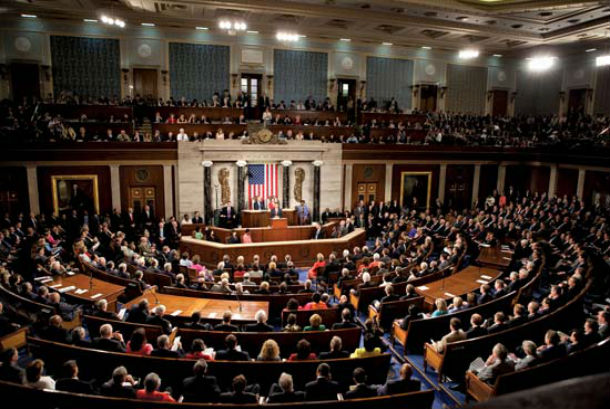 Dharamshala — The US House of Representatives highlighted the situation in Tibet and the need to pass pending legislations on January 18, 2018 during a debate on China’s Strategy to Accrue Global Power.
Dharamshala — The US House of Representatives highlighted the situation in Tibet and the need to pass pending legislations on January 18, 2018 during a debate on China’s Strategy to Accrue Global Power.
Representative Ted Yoho, Chairman of the Asia and the Pacific Subcommittee on House Foreign Affairs Committee, initiated the discussion, after the subcommittee had a hearing on Tibet on December 6, 2017.
On the floor of the House, Representative Yoho said, "If we look at the Tibetan people, the Tibetan are probably one of the most peaceful populations on Earth, but yet I can’t travel there as a U.S. dignitary or as a U.S. Member of Congress. They can’t come here and be recognized. The Dalai Lama can’t come here and be recognized because China gets mad. Beijing gets mad. The Tibetan people have a way to pass on the Dalai Lama to the next generation. China kidnapped the Panchen child and said: We will replace it with who we think should be the next leader, and it is somebody they are going to groom."
"China has grown to become a revisionist power—not rising within the current order, but seeking to change, subvert, or coerce it to suit China’s end—not playing by the rules, but rewriting the rules to suit the needs of China,” Representative Yoho added.
Representative Jim McGovern also addressed the issue, saying, "I have often stood on the floor of this House to call for respect for the human rights of the Tibetan people in China. Just a few months ago the Tom Lantos Human Rights Commission, which I co-chair, held a hearing on the repression of religious freedom in Tibet.
"Tibetan Buddhists face extensive controls on their religious life—an intrusive official presence in monasteries, pervasive surveillance, limits on travel and communications, and ideological re-education campaigns. Religious expression and activism have been met with violent repression, imprisonment and torture.
"This extreme Chinese interference in the physical and spiritual lives of Tibetans occurs even though the Tibetans seek only to fully exercise the autonomy guaranteed them by the Chinese constitution and China’s ‘‘Law on Regional Ethnic Autonomy.’’ In the late 1980s the Dalai Lama proposed the Middle Way Approach as a path toward Tibetan autonomy within China, and he has pursued that path through non-violence ever since.
"I urge us to start by passing two pieces of legislation on Tibet that have been introduced in the House: H.R. 1872, the Reciprocal Access to Tibet Act, and H. Con. Res. 89, expressing the sense of Congress that the treatment of the Tibetan people should be an important factor in the conduct of United States relations with the People’s Republic of China. I urge the full and robust implementation of the Tibet Policy Act of 2002—including the designation of the Special Coordinator for Tibetan Policy, a statutory position that the Administration has yet to fill."
Representative Ted Poe also added his concerns about Chinese persecution of the Tibetan people saying, "So when you have an atheistic regime in charge, you can see why they persecute their own people and torture not only Christians and Muslims, but Tibetans and other people who don’t agree with their atheistic philosophy."


![Tibet has a rich history as a sovereign nation until the 1950s when it was invaded by China. [Photo: File]](/images/stories/Pics-2024/March/Tibet-Nation-1940s.jpg#joomlaImage://local-images/stories/Pics-2024/March/Tibet-Nation-1940s.jpg?width=1489&height=878)















